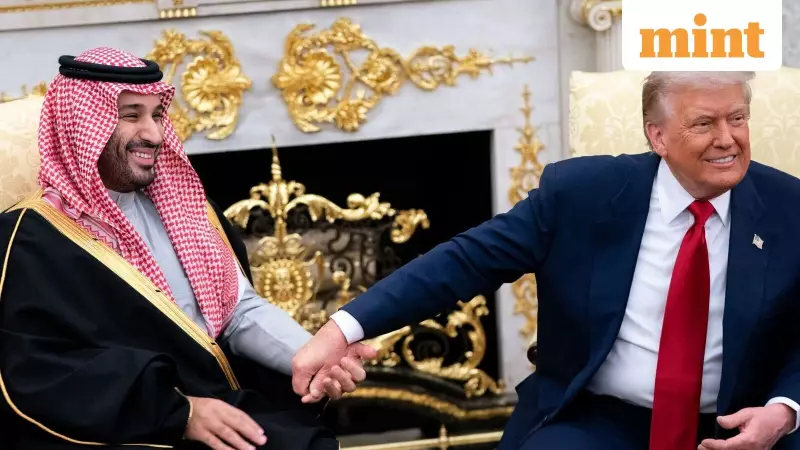
In a significant diplomatic move, US President Donald Trump announced on Tuesday that Saudi Arabia has been designated as a Major Non-NATO Ally (MNNA) during an elaborate gala dinner hosted for Crown Prince Mohammed bin Salman at the White House.
What MNNA Status Means for Saudi Arabia
The Major Non-NATO Ally designation represents one of the closest strategic partnerships the United States can offer to countries outside the NATO alliance. This status grants Saudi Arabia priority access to advanced military equipment financing and enables the kingdom to participate in joint research initiatives with American defense establishments.
President Trump revealed this development during the high-profile event, stating, "Tonight, I'm pleased to announce that we're taking our military cooperation to even greater heights by formally designating Saudi Arabia as a major non-NATO ally, which is something that is very important to them."
The President added that this announcement had been kept confidential for the special occasion, noting that only 19 other nations have previously received this prestigious designation.
Exclusive Gathering of Global Leaders
The Tuesday evening event brought together an impressive roster of international business leaders and celebrities. Among the distinguished guests were Tesla CEO Elon Musk, football legend Cristiano Ronaldo, Apple CEO Tim Cook, and FIFA President Gianni Infantino.
The guest list also featured prominent corporate leaders including Citigroup's Jane Fraser, Nvidia's Jensen Huang, and investor Bill Ackman. Attendees were treated to an elegant dinner featuring rack of lamb served at long tables adorned with candles and floral arrangements.
Strengthening US-Saudi Strategic Partnership
Earlier in the day, President Trump had welcomed the Saudi Crown Prince with lavish praise during an Oval Office meeting, referring to MBS as a "very good friend of mine" and explicitly clearing him of responsibility for the 2018 murder of Washington Post journalist Jamal Khashoggi.
The two leaders solidified their partnership through several key agreements, including a broadly-worded defense cooperation pact that opens the possibility for future sales of F-35 advanced fighter jets to Saudi Arabia. The United States also committed to formalizing negotiations regarding assistance for Saudi Arabia's civil-nuclear program.
In a significant economic development, Saudi Arabia pledged to increase its investment in the United States from $600 billion to $1 trillion, representing a major diplomatic victory for Crown Prince Mohammed bin Salman, who had faced international isolation from Western allies following the Khashoggi incident.
The relationship between Trump and MBS has remained warm since the early years of Trump's first presidential term. This strengthened alliance could potentially reshape the geopolitical landscape of the Middle East, though key challenges remain, particularly regarding the normalization of Saudi-Israeli relations, which has been complicated by Israel's ongoing conflict with Hamas in Gaza.
Additionally, the two nations reached an agreement on artificial intelligence cooperation after tense negotiations concerning Saudi Arabia's request for access to advanced semiconductor chips. While no formal announcement was made, sources confirmed that the US has agreed to approve technology deliveries to Saudi firm Humain.
With this designation, Saudi Arabia becomes the 20th country to receive Major Non-NATO Ally status, joining other US partners including Argentina, Australia, Bahrain, Brazil, Egypt, Israel, Japan, Jordan, South Korea, and Pakistan.





